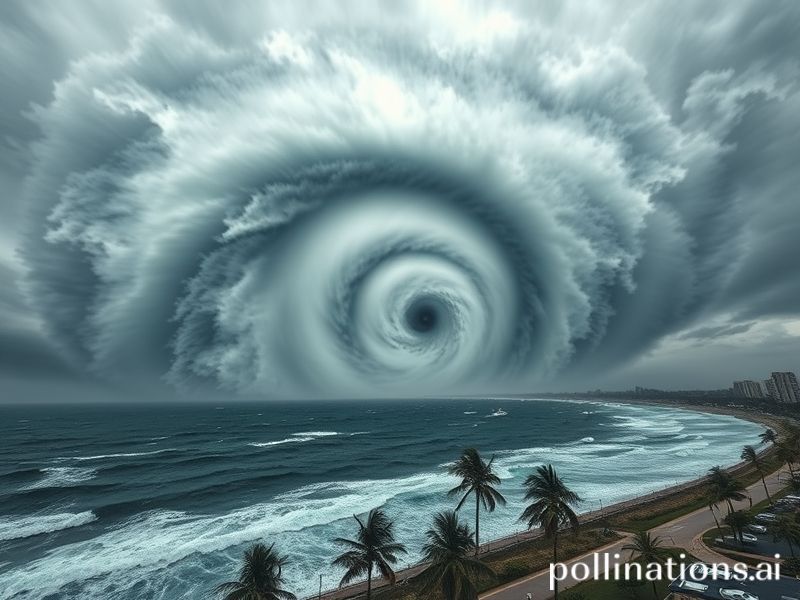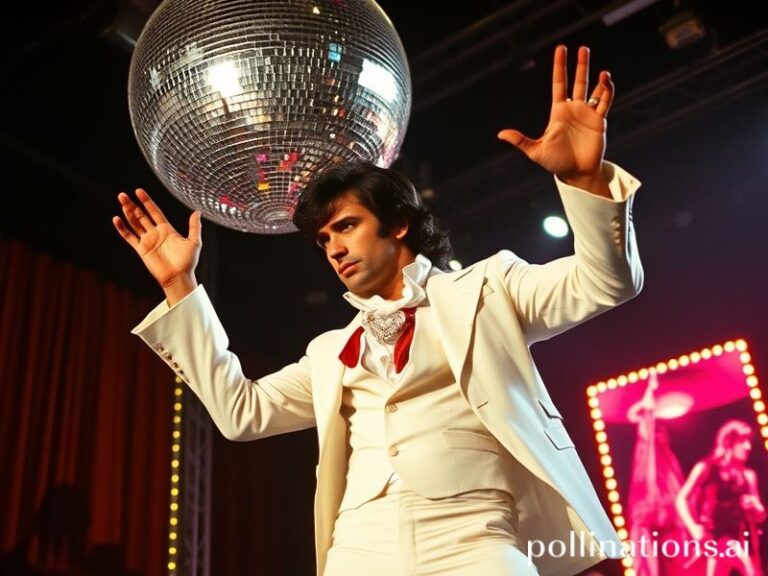When Mother Nature Throws a Tantrum: The Global Trend of Hurricanes and Tropical Storms
# When Mother Nature Throws a Tantrum: Why Hurricanes and Tropical Storms Are Trending Globally
Alright, folks, buckle up! It’s not just your favorite influencer who’s been causing a storm lately. Mother Nature has been flexing her muscles, and the internet is buzzing about it. Hurricanes and tropical storms are trending globally, and we’re here to break down why this isn’t just weather news—it’s a cultural phenomenon.
## The Perfect Storm of Awareness
First off, let’s talk about why these natural disasters are suddenly everyone’s favorite topic. It’s not just because people love a good dramatic weather forecast (though, let’s be real, those radar maps are mesmerizing). The increased awareness and discussion around hurricanes and tropical storms can be attributed to a few key factors:
1. **Climate Change Chatter**: With climate change being the hottest topic (pun intended) of the decade, people are more attuned to extreme weather events. Scientists are warning us that these storms are getting stronger and more frequent, and the internet is taking notes.
2. **Social Media Storms**: Thanks to platforms like Twitter, Instagram, and TikTok, news spreads faster than a hurricane’s eye wall. When a major storm hits, it’s not just local news—it’s global. Memes, live updates, and dramatic footage flood our feeds, making it impossible to ignore.
3. **Global Impact**: Hurricanes and tropical storms aren’t just a problem for coastal regions anymore. With climate change altering weather patterns, these storms are affecting more areas than ever before. From the Caribbean to the coasts of the U.S., Asia, and beyond, everyone’s feeling the impact.
## Cultural Context: When the Weather Steals the Spotlight
Let’s dive into the cultural significance of these storms. Hurricanes and tropical storms have become more than just weather events—they’re cultural touchstones. They inspire memes, influence pop culture, and even shape political discussions.
– **Memes and Mayhem**: The internet loves a good disaster meme. From “Batten down the hatches” to “Is this thing on?”, hurricanes provide endless fodder for humor. And let’s not forget the iconic “Florida Man” stories that emerge during storm season.
– **Pop Culture Impact**: Hurricanes have been the backdrop for countless movies, TV shows, and books. Think “The Perfect Storm,” “Sharknado,” and even “The Day After Tomorrow.” These storms add drama, tension, and a whole lot of rain to any story.
– **Political Storms**: Hurricanes also have a way of highlighting societal issues. From discussions about climate change to debates on disaster relief and infrastructure, these storms bring political and social conversations to the forefront.
## Social Impact: More Than Just Rain and Wind
The social impact of hurricanes and tropical storms is immense. These storms disrupt lives, displace communities, and leave lasting scars on both the environment and the people affected.
– **Economic Fallout**: The economic impact of these storms is staggering. From damaged infrastructure to lost businesses, the costs add up quickly. And let’s not forget the ripple effects on global markets and supply chains.
– **Human Toll**: The human cost is even more devastating. Lives are lost, families are displaced, and communities are left to pick up the pieces. The emotional and psychological impact can last for years.
– **Environmental Aftermath**: Hurricanes and tropical storms leave a lasting mark on the environment. Deforestation, coastal erosion, and habitat destruction are just a few of the long-term effects. And with climate change making these storms more intense, the environmental impact is only going to grow.
## Why This Topic Matters
So, why should you care about hurricanes and tropical storms trending globally? Because this isn’t just about weather—it’s about our future. These storms are a wake-up call, a reminder that climate change is real and it’s affecting us all.
By staying informed and engaged, we can better prepare for these events, support affected communities, and push for policies that address the root causes of these storms. And who knows? Maybe the next time a hurricane hits, we’ll be ready to weather the storm—both literally and figuratively.
—







